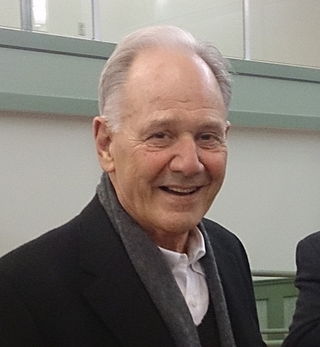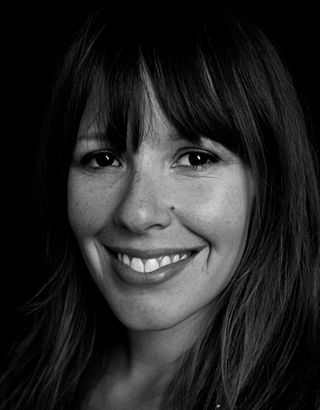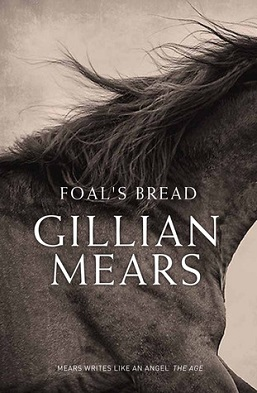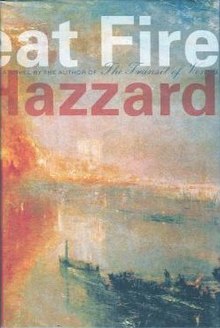The Miles Franklin Literary Award is an annual literary prize awarded to "a novel which is of the highest literary merit and presents Australian life in any of its phases". The award was set up according to the will of Miles Franklin (1879–1954), who is best known for writing the Australian classic My Brilliant Career (1901). She bequeathed her estate to fund this award. As of 2016, the award is valued at A$60,000.

Timothy John Winton is an Australian writer. He has written novels, children's books, non-fiction books, and short stories. In 1997, he was named a Living Treasure by the National Trust of Australia, and has won the Miles Franklin Award four times.

Shirley Hazzard was an Australian-American novelist, short story writer, and essayist. She was born in Australia and also held U.S. citizenship.

Alexander McPhee Miller is an Australian novelist. Miller is twice winner of the Miles Franklin Award, in 1993 for The Ancestor Game and in 2003 for Journey to the Stone Country. He won the overall award for the Commonwealth Writer's Prize for The Ancestor Game in 1993. He is twice winner of the New South Wales Premier's Literary Awards Christina Stead Prize for Conditions of Faith in 2001 and for Lovesong in 2011. In recognition of his impressive body of work and in particular for his novel Autumn Laing he was awarded the Melbourne Prize for Literature in 2012.
Carrie Tiffany is an English-born Australian novelist and former park ranger.
Charlotte Wood is an Australian novelist. The Australian newspaper described Wood as "one of our [Australia's] most original and provocative writers".
Gail Jones is an Australian novelist and academic.
Alexis Wright is a Waanyi writer best known for winning the Miles Franklin Award for her 2006 novel Carpentaria and the 2018 Stella Prize for her "collective memoir" of Leigh Bruce "Tracker" Tilmouth.

Tara June Winch is an Australian writer. She is the 2020 winner of the Miles Franklin Award for her book The Yield.

Michelle de Kretser is an Australian novelist who was born in Sri Lanka, and moved to Australia in 1972 when she was 14.

Gilgamesh, published in 2001, is the first full-length novel written by Joan London. It is inspired by the Epic of Gilgamesh, the world's oldest known poem.

Journey to the Stone Country is a 2002 Miles Franklin literary award-winning novel by the Australian author Alex Miller.

The Widow and Her Hero is a novel by the Australian author Thomas Keneally set in Australia during World War II.
The Lost Man Booker Prize was a special edition of the Man Booker Prize awarded by a public vote in 2010 to a novel from 1970 as the books published in 1970 were not eligible for the Man Booker Prize due to a rules alteration; until 1970 the prize was awarded to books published in the previous year, while from 1971 onwards it was awarded to books published the same year as the award. The prize was won by J. G. Farrell for Troubles.
Evelyn Rose Strange "Evie" Wyld is an Anglo-Australian author. Her first novel, After the Fire, A Still Small Voice, won the John Llewellyn Rhys Prize in 2009, and her second novel, All the Birds, Singing, won the Encore Award in 2013 and the Miles Franklin Award in 2014. Her third novel, The Bass Rock, won the Stella Prize in 2021.

Christine Piper is an Australian author and editor. Her first novel, After Darkness, won the 2014 The Australian/Vogel Literary Award and was shortlisted for the 2015 Miles Franklin Literary Award. She won the 2014 Calibre Prize for an Outstanding Essay for "Unearthing the Past".

Everyman's Rules for Scientific Living is a 2005 novel by Australian author Carrie Tiffany. It won the 2005 Western Australian Premier's Book Award for Fiction, and was shortlisted for the 2006 Miles Franklin Award and the 2007 Orange Prize for Fiction.

Foal's Bread is a 2011 novel by Australian author Gillian Mears. It was the winner of the 2012 ALS Gold Medal, the Age Book of the Year for Fiction, the Prime Minister's Literary Award for Fiction, and the Victorian Premier's Literary Award for Fiction. It was also shortlisted for the Miles Franklin Award and the Barbara Jefferis Award.
Favel Parrett is an Australian writer.

Too Much Lip (2018) is a novel by Australian author Melissa Lucashenko. It was shortlisted for the 2019 Victorian Premier's Literary Award for Indigenous Writing and the Stella Award. It was the winner of the 2019 Miles Franklin Award.












